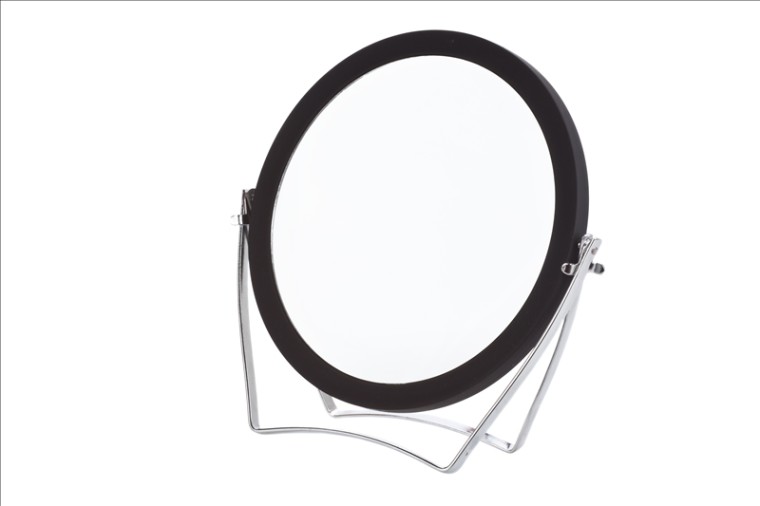3 Tips to Ace the Technical Interview
May 27, 2015
 At some point in your networking career, you are almost certainly going to face the dreaded technical interview. In this blog posting, let’s answer the question, “How do you go in and come across as the candidate that the company wants to hire?”
At some point in your networking career, you are almost certainly going to face the dreaded technical interview. In this blog posting, let’s answer the question, “How do you go in and come across as the candidate that the company wants to hire?”
Certainly, there are lots of books, and there is lots of advice on how to answer different interviewing questions, but in this blog posting I want to give you three specific tips that have worked for me in different interviews.
Tip #1

Tip #1 is to establish rapport. I remember many years ago, I was interviewing with one of the big ten accounting firms for an IT position. On my drive to the office to be interviewed, I was listening to one of my many Anthony Robbins tapes – that shows you how long ago it was. I was actually listening to a tape, not a CD or not an mp3.
On that tape, Anthony Robbins tapes was talking about the importance of rapport. He was making a statement that, “We tend to like people that are like us.” He was talking about how we could establish rapport through matching and mirroring.
In other words, when we are talking with someone, if they make a certain gesture, we could subtly make a similar gesture. If they lean forward, we lean forward. If they are talking really, really fast at a high volume, then we talk really, really fast at a high volume. But if they talk more slowly, then we slow down our pace as well. I decided to try it in my interview.
During my interview, the main person that was interviewing me had a very distinctive habit that I could easily mirror. I was actually a little concerned to mirror him, thinking he might notice. When he would say something, he would nod his head up and down, very rapidly. I started mirroring that.
As I answered a question, I would nod my head fairly rapidly. I honestly believe that mirroring technique had a lot to do with them offering me the job.
In the end, the company and me did not agree on the salary; so I turned down the job offer. But a few weeks later, he called me and asked, “Do you know somebody else that is like you? We are looking for somebody like you.” I don’t think that was because I had great technical skill at that point, but I do think it had a lot to do with me nodding my head up and down, mirroring his actions. You might want to try and establish rapport by mirroring the actions of the person interviewing you the next time you find yourself in an interview.
Tip #2

The second tip is in regards to how you answer the question, “What is one of your biggest mistakes?” That is one of the classic interviewing questions that many, many people get asked.
One of the standard recommendations from the interviewing books is to answer the question in such a way that you are actually answering with one of your positive characteristics. However, I think that comes across as being disingenuous.
If somebody asks, “What is one of your weaknesses?” or “What is a mistake you’ve made?” some of the advice out there would have you say, “Well, one of my greatest weaknesses is that I’m a perfectionist, and it tends to frustrate me when I see my co-workers not giving the same level of effort that I’m giving.”
The theory is that you have now positioned yourself as somebody that is a perfectionist – you are going to get things done right. You actually communicated a strength rather a weakness.
However, personally, I don’t like that approach. As I mentioned, I don’t think that sounds very genuine. What I would prefer you do instead, is to tell a true story of regret where you have the ability to show emotion, and you can show that you have learned from that mistake.
For example, I remember during an interview, I was asked about one of my biggest mistakes. I told them the story that I told you in a previous blog posting, where I had coached one of my direct reports in a location where this employee’s peers could hear what was going on. I expressed in the interview how that was a mistake, how I regretted it, how I went and apologized, and how I never made that mistake again.
I think showing that level of honesty, that level of vulnerability, where you are exposing a true weakness, but showing that it’s no longer a weakness – you’ve learned from it, is a lot more impactful than saying something like, “My greatest strength is that I am a perfectionist.”
Tip #3

Finally, Tip #3 is more focused on the technical aspect of the interview. You see, when you go into a technical interview with a company, they are probably going to be asking you technical questions about their network, about their equipment, about their protocols, and maybe you don’t work with those specific technologies on a day-to-day basis.
I remember when I interviewed with Walt Disney World, they asked me a couple of questions that I did not get completely correct. They asked me a Spanning Tree Protocol (STP) question, and they asked me an EIGRP question. Both of these technologies were big design considerations for them. However, at that time, I hadn’t been regularly working with those technologies. So, I was able to partially answer the questions, but not fully.
Coming out of that technical interview, I thought I may have blown it. I missed two technical questions they asked, but actually, they did offer me the job.
I believe the reason was that in that technical interview, even though I did not perfectly answer the questions they asked, when we were talking about different networking scenarios, I brought up a very complex scenario that I had worked on.
I told them a story about how I configured BGP to do dual-homing to two different Internet Service Providers (ISPs), and how I had to do an autonomous system prepend to make my network’s autonomous system seem more attractive via the ISP that had the higher bandwidth. I sketched the topology on their whiteboard, and even though BGP was not something they were particularly concerned with, it showed that I had a level of technical expertise, even though I did not give a perfect response to the STP or EIGRP questions.
That’s what I recommend you do. Before going into a technical interview, think about something really complex that you’ve configured. Or, if you cannot think of anything, dig into some CCIE Routing and Switching books, and lab up a scenario.
Do something complex. Do mutual route redistribution between two different autonomous systems, with multiple redistribution points, and prevent a routing loop by using route tags. That is just the first example that came to mind, but come up with some scenario demonstrating you are technically competent, even though you may not know everything about their particular network technologies.
I remember conducting technical interviews for a company that was using a lot of ATM, and I would ask candidates about different ATM concepts. ATM was not that widely known. Somebody might come in knowing about routing and switching, but when it came with the ATM and setting up LAN Emulation (LANE), most candidates didn’t really know much about those topics. However, I judged them based on the level of technical expertise they did demonstrate. So, I encourage you in your technical interview, be ready to display your technical competence by telling a really great story about an advanced technology that you did configure.
The Takeaway
Those are my 3 tips for you:
- Tip #1: Establish a rapport with the person interviewing you.
- Tip #2: When you are asked about a weakness, give a genuine story of regret about a failure you’ve had, and discuss how you learned from it, and how you will never make that mistake again.
- Tip #3: Even though you may not know everything about a company’s technical environment, you can come into a technical interview armed with a cool story about something really technical you set up, which demonstrates your technical competence.
By the way, I just started a new podcast, called The Broadcast Storm. You can subscribe here:
iTunes: http://kwtrain.com/podcast
RSS Feed: http://kwtrain.com/rss

Kevin Wallace, CCIEx2 (R/S and Collaboration) #7945, CCSI 20061


